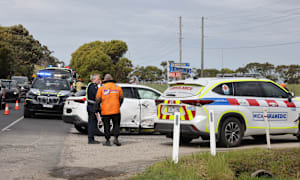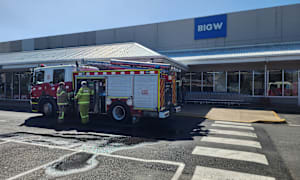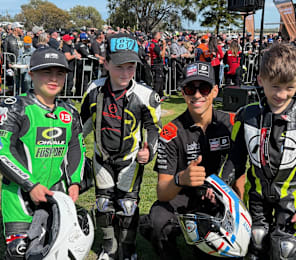By Trent Westaway
AS THE federal election draws nearer, South Gippsland and Bass Coast residents are being urged to demand real, lasting reform in Australia’s mental health system, particularly in regional communities where services remain sparse, and support is often out of reach.
For Donna Kerr, the fight for better mental health support is deeply personal. After losing her son Daniel to suicide, she has become an advocate for improved access, affordability, and understanding in a system she believes is critically under-resourced.
“Since losing Daniel, my eyes have become very wide open,” Donna said. “I’ve had so many people reach out, young adults, older adults, all saying there’s just not enough support. The city has so many outlets. Out here in the country, we haven’t got near enough.”
Donna is not alone. Across Gippsland, there is a call for urgent and meaningful investment in mental health. Despite repeated government pledges, Donna believes most policies amount to little more than “Band-Aid fixes”.
“We don’t need a temporary solution. We need something permanent – and it needs to be free. People shouldn’t have to choose between getting help and paying their bills. No one should be forking out $300 for an appointment when they’re already struggling.”
As mental health continues to take centre stage in the national conversation, Donna has been speaking with local political candidates, including independent candidate for Monash, Deb Leonard, about what real change could look like.
“She’s been very supportive, and we’ve had lengthy discussions about the gaps here in the regions.”
In a statement, Ms Leonard said the Monash electorate was “crying out for dedicated, specialised mental health support”, pointing to the lack of acute mental health beds and step-up-step-down facilities as major failings.
“Patients and their families have to travel to Traralgon for acute mental health support, and as far as Bairnsdale for step-up-step-down facilities. It’s not good enough,” she said.
“Residents are suffering, families are under strain, and lives are being lost
because successive governments have overlooked our mental health needs for too long.”
Ms Leonard said she would fight for local facilities, expand youth mental health services such as Headspace, and advocate for an increase in Medicare-covered sessions – noting that mental health issues are “rarely resolved in just 10 sessions”.
The lack of crisis support is another urgent concern. Donna shared a harrowing story where someone in acute distress was told by a helpline to call back another day.
“When you’re in crisis, that response can be the difference between life and death,” she said.
“You don’t know what someone’s going through until it’s too late.”
She also called out the lack of political focus on men’s mental health.
“I would like to see a Minister for Men and Boys. As women, we have a Minister and lots of support. Why don’t men? It’s not just one way; men have a right to support too.”
Education and early intervention also ranked high on Donna’s list of priorities. She wants schools and communities to play a bigger role in mental health prevention.
“We need more education – more awareness about the signs, more safe spaces where people feel they can talk. Teachers and staff should be trained to handle mental health crises properly.”
Ms Leonard echoed these calls, saying schools must be resourced to deliver best-practice anti-bullying education and mental health programs. “I want to see all teachers and school staff receive comprehensive mental health training,” she said.
And Donna is calling for a shift in who delivers the support, pleading for greater involvement of people with lived experience.
“We need more people with lived experience, people who understand it and can connect. Stats are fine, but unless you’ve seen it raw, especially in our communities, you don’t really get it.”
With some of the highest suicide rates in the state, the cry for change in Gippsland and Bass Coast can no longer be ignored.
All nine candidates contesting the seat of Monash at the upcoming federal election were contacted for comment.











